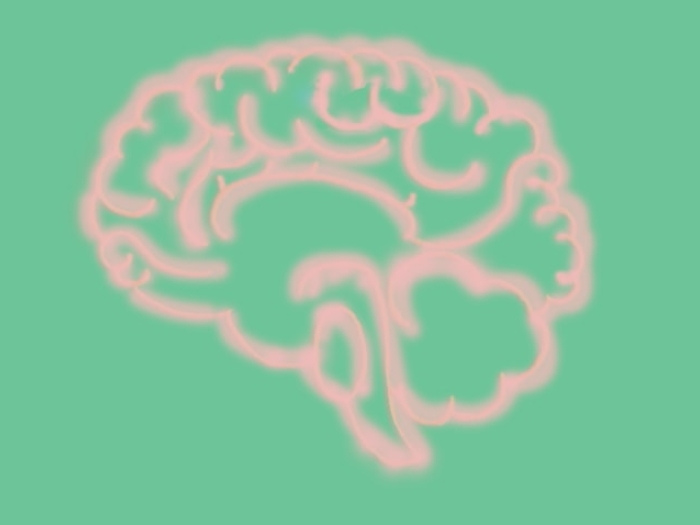A patient finally gets answers to his health concerns, thanks to “a doctor who listened closely” to his symptoms.
5:00 AM
Author |

Dennis Morgan loved the game of golf. Healthy and able, he chose to walk the course instead of using a golf cart as a way to increase his exercise.
In 2019, however, things began to change for the Traverse City, Michigan, resident, who says he started feeling lightheaded, short of breath and fatigued.
MORE FROM MICHIGAN: Sign up for our weekly newsletter
"I noticed it mainly when I was golfing – and especially when I would go up a hill at one particular hole."
Morgan's family doctor suggested the now 69-year-old see a local cardiologist, who diagnosed him with a low heart rate and atrial fibrillation and recommended a blood thinner and pacemaker.
But Morgan's symptoms continued.
Determined to understand the cause of his ongoing issues, Morgan returned to his primary care physician. A series of tests, including an MRI, pointed to cerebral amyloidosis, a vascular disease of the brain in which amyloid protein buildup can interfere with the nervous system.
Morgan was referred to a prominent out-of-state health care system where his amyloidosis condition was challenged as his symptoms were thought to be due instead to a condition known as persistent postural-perceptual dizziness. This disorder of the nervous system results in periodic dizziness or unsteadiness brought on by a person's physical movement and is related to anxiety or psychological distress.
Searching for an answer
But Morgan and his wife, Sheila, weren't convinced this was the right diagnosis — and neither was his primary care physician, who made a referral to the University of Michigan Health for further testing.
There, during the height of Covid-19 in 2020, Morgan met with neurologist Sayyed Sohrab, M.D., via a telehealth appointment.
From that point on, his health condition became clearer.
And all it took was "a doctor who listened closely to my symptoms," said Morgan, noting that further physiological testing determined his previous diagnosis was incorrect. Instead, he learned his symptoms were being caused by extremely low blood pressure associated with one of two possible neurological issues considered variants of Parkinson's disease: multiple system atrophy and pure autonomic failure.
"What he described on video was 'moments of feeling unsteady', with a 'fuzziness' that gradually spread from his stomach and chest to his head, causing him to lean on something for a few minutes," said Sohrab. "This would recur two or three times a day, and was usually worse upon awakening in the morning."
While on the video call, Morgan was asked to take his blood pressure.
"After observing a drastic drop in blood pressure (by almost one-third) when sitting or standing, it became clear that the patient's symptoms were being caused by extremely low blood pressure, which, in addition to a mild tremor and history of sleep disturbance, pointed to a more central pathology," said Sohrab. "Concern was raised for multiple system atrophy or pure autonomic failure."
Multiple system atrophy is a rare neurodegenerative disorder that can cause balance issues, difficulty with movement, poor coordination, sleep disturbances and poor blood pressure control.
The biggest obstacle in getting a firm diagnosis was that the patient was not being listened to.Sayyed Abdolvahhab Sohrab, MD
Pure autonomic failure is also a rare neurodegenerative disorder affecting the autonomic nervous system that regulates body processes such as blood pressure and breathing rate. The main symptom is a sudden drop in blood pressure.
Morgan and his wife, Sheila, were surprised, to say the least.
"In all the years and specialists during my journey to find the cause of my symptoms, Dr. Sohrab was the first doctor to check my blood pressure in different positions of standing, sitting and laying," said Morgan. "This was such a simple thing but no one had ever done it."
Closing in on a final diagnosis
"Our diagnosis for his dizziness was based on a real and drastic drop in blood pressure when Mr. Morgan stood up," said Sohrab. "We understood this by listening carefully to his symptoms. After I saw the patient in clinic, and confirming subtle but concrete signs, we did a radiosiotope brain scan to confirm his diagnosis of a parkinsonian disease.
The difference between Parkinson's disease and variants of the disease centers around the dominance of presenting symptoms, says Sohrab.
"Individuals with Parkinson's disease typically present with such symptoms as slowness, tremors and rigidity, whereas symptoms of parkinsonian variants often include a drop in blood pressure, sleep disturbances, dizziness and loss of balance, so the initial presentation plays a key role in teasing these variants apart.
"The biggest obstacle in getting a firm diagnosis was that the patient was not being listened to," said Sohrab. "We talked with him and tried to get in tune with his experience. After listening carefully, we felt he had been misdiagnosed."
"The patient's presentation at the beginning was mostly autonomic and perhaps the reason behind the parkinsonian origin being overlooked, as is normally the case in pure autonomic failure. Despite being a rarer condition, pure autonomic failure has a better prognosis than multiple system atrophy," said Sohrab, adding that Morgan has been referred to the U-M Health subspecialty movement disorder clinic for the final diagnosis and expert care.
The right treatment
Morgan is also being treated by U-M Health cardiologist James Froehlich, M.D., who is focused on managing his blood pressure and prescribing medication to help retain water in his system.
Sleeping with his head elevated, compression stockings, increased fluid, Gatorade intake and salt intake are also part of his daily routine, says Morgan, noting that he still needs to rest each day to alleviate his milder symptoms. He's also exercising daily and working in his yard. And, as for golf, he's now a substitute on a golf league and doesn't turn down a golf cart.
"Little tweaks for a new normal," he said.
"All of this is vital to keep his system active," said Sheila of her "extremely fit" husband.
Future appointments include a U-M Health vascular neurologist to address his cerebral amyloidosis condition and a U-M Health movement neurologist for his Parkinsonian pathology, says Sohrab.
"We can't reiterate enough how grateful we are to University of Michigan Health," said Sheila. "Dr. Sohrab has helped tremendously with our confidence. He is such a large part of our journey."
"Hearing the patient requires humility of listening," said Sohrab. Although a complex diagnosis, he insists that "simple but empathic listening and spending time," was key to making the diagnosis.
"Hearing," Sohrab said, "is healing."
Like Podcasts? Add the Michigan Medicine News Break on iTunes or anywhere you listen to podcasts.

Explore a variety of health care news & stories by visiting the Health Lab home page for more articles.

Department of Communication at Michigan Medicine
Want top health & research news weekly? Sign up for Health Lab’s newsletters today!





